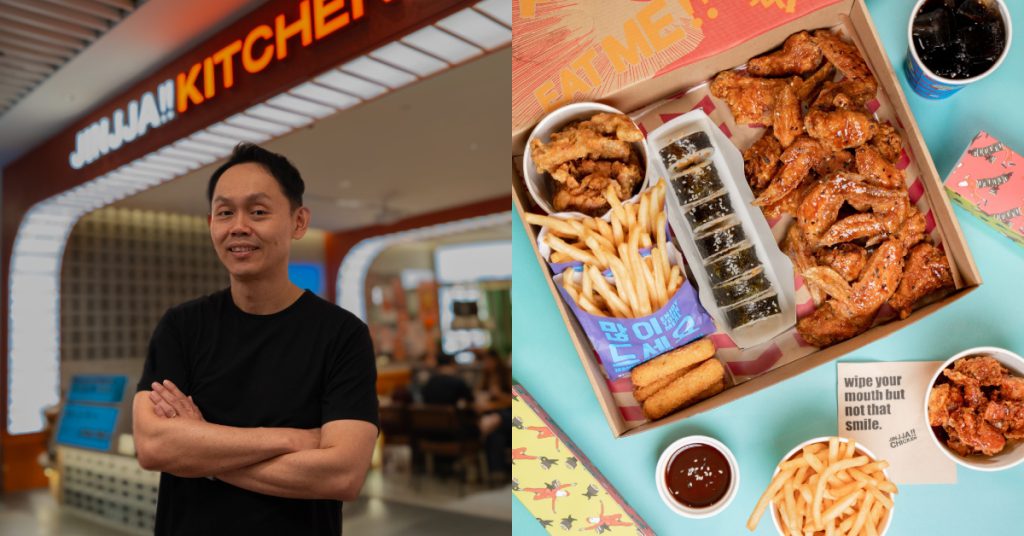Singapore’s F&B landscape is notoriously competitive—recent months have seen a wave of closures, with many struggling to stay afloat amidst rising costs and shifting consumer habits. One former F&B owner even went so far as to warn, “Don’t come to F&B right now.”
This is why a brand like Jinjja Chicken is considered a rarity. The Singaporean F&B brand is known for its Korean fried chicken, and is still standing strong 10 years later.
But that success didn’t come without blood, sweat, and tears. We spoke to Bernard Tay, the co-founder and Managing Director of the brand, who has come forward to share his story, offering insights into the winning recipe behind Jinjja Chicken.
Persisting despite rejection
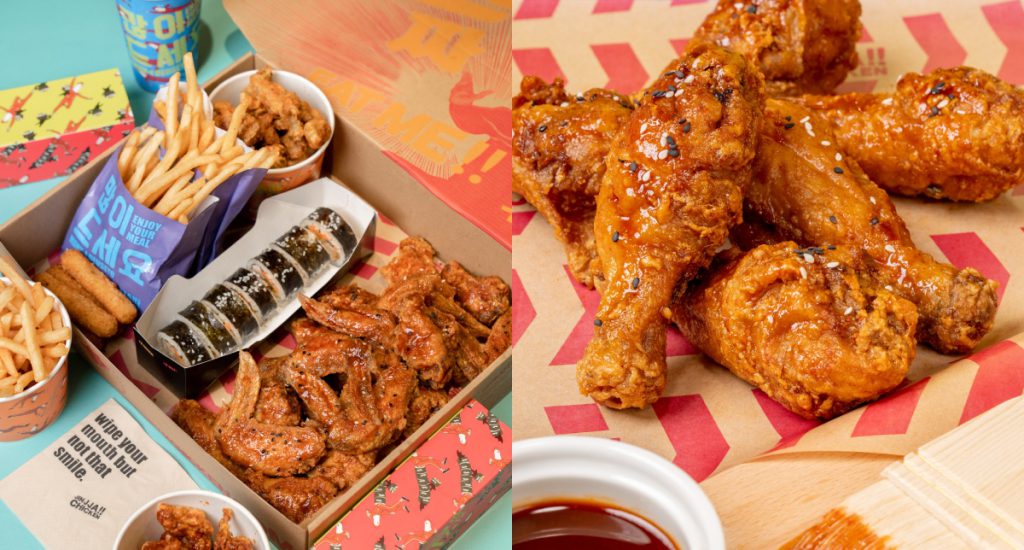
Jinjja Chicken opened its first outlet at Bugis Village in 2015, but that didn’t come easily; it was the result of constant persistence.
Although Bernard saw a gap for more accessible and affordable authentic Korean dishes in Singapore’s F&B scene—at the time, only a handful of eateries offered Korean fried chicken or authentic Korean cuisine, mostly located in Tanjong Pagar and charging premium prices—turning that vision into reality was an uphill battle.
He shared that it took him nine months to land a unit at Bugis Village in 2015, as he faced constant rejections from shopping malls due to the novelty of his concept.
“I still remember having to bring our fried chicken to meetings just to convince landlords to give us a chance,” lamented Bernard, adding that he had to pay a hefty takeover fee to secure the unit, though he didn’t provide a figure.
To get the business off the ground, Bernard shared that he poured all his life savings and took a S$250,000 bank loan. At the same time, his wife had also just given birth to his second child, significantly raising the stakes.
With no other source of income, everything hinged on the success of Jinjja Chicken. “There was no safety net. If the business had failed, I was prepared to sell my 3-room HDB flat to repay the debt,” he recounted.
The risk taken by Bernard appears to have paid off today—but even after opening, the business’s early days were far from smooth sailing.
Do your homework first
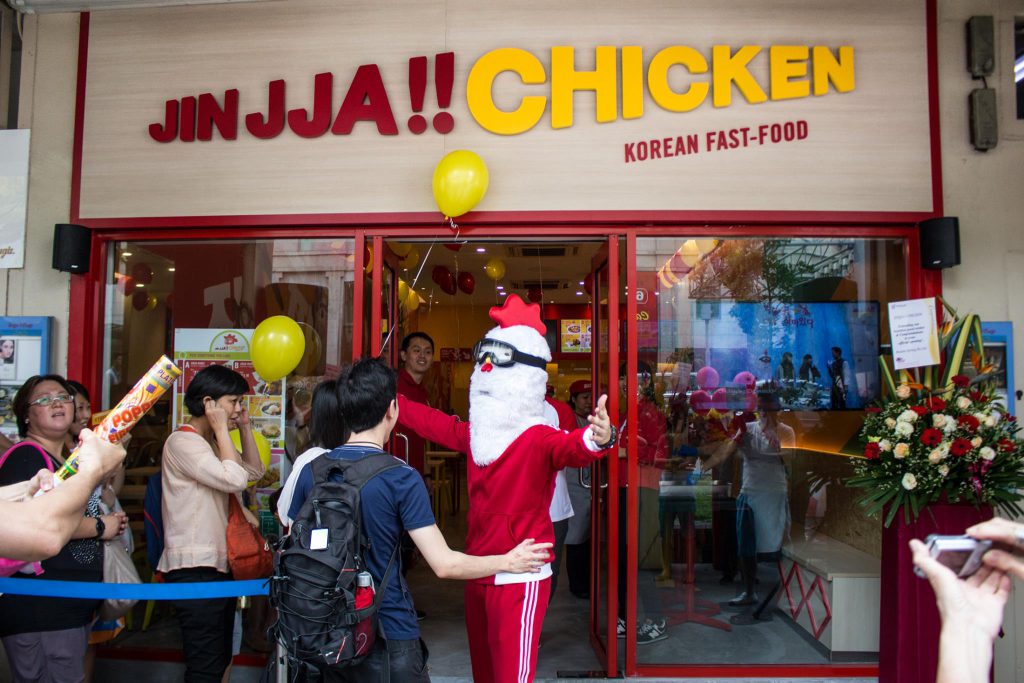
In an interview with The Straits Times, Bernard shared that the restaurant encountered financial difficulties just two months after opening, with only S$6,000 left in his corporate account after paying for rental and junior crew salaries.
For the first nine months, he couldn’t draw a salary, and recalled telling his restaurant manager and assistant managers that he didn’t have enough funds to pay them on time. He asked them to take money from the till for a week to make up for their wages.
The financial strain extended beyond payroll—he also owed suppliers up to S$100,000 for three months.
Looking back, Bernard shared that he should have planned his cash flow more carefully and factored in more time for the business to gain traction and build steady traffic, given that he didn’t have sufficient funds to market and promote the restaurant.
You need to understand who your target audience is, where they go, what they like, and how they spend. Don’t start a business thinking that everyone can be your customer.
Starting a restaurant in Singapore is never easy. The barriers to entry are high, especially if you’re new and unknown. That’s also why it’s super important to do your homework and believe in your concept.
Bernard Tay, founder and Managing Director of Jinjja Chicken
“There’s no perfect timing to expand”
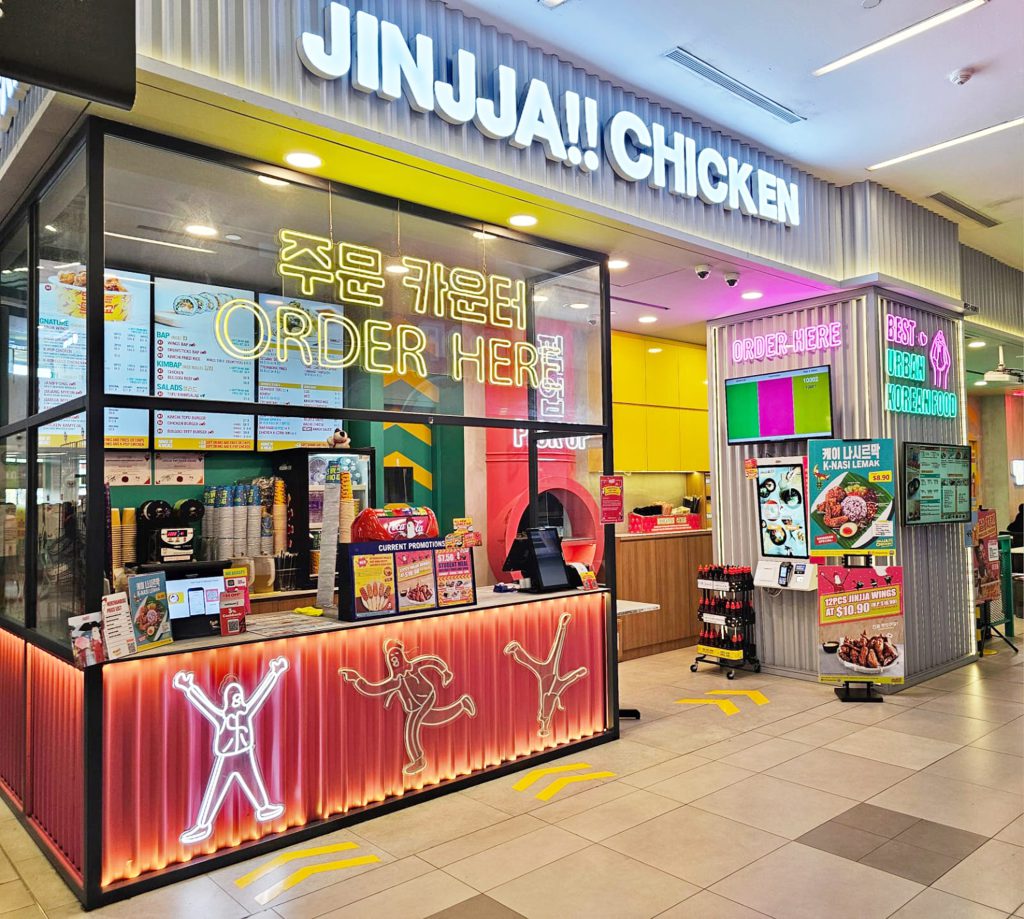
Fortunately, the tides have since shifted for the better, as Jinjja Chicken has broken even after two years of operations.
One might believe that the secret to the business’s successful growth lies in knowing when to expand, but Bernard’s reply might be surprising.
“There’s no perfect timing to expand. When an opportunity comes, you have to seize it and adapt as you grow,” he said.
What’s more important, though, is building a strong brand and team before expanding, to which Bernard credited Stanley Lim, the co-founder and operations director of Jinjja Chicken, whom he said played a vital role in shaping the brand and leading day-to-day operations.
When operating more than one outlet, F&B owners need to develop a system to ensure that food quality remains consistent across the board. They also need to focus on keeping the brand relevant through changing consumer behaviours and food trends.
According to Bernard, customers now harbour higher expectations and constantly desire more value. In addition, he also noted the increase in competition from international brands over the decade, especially from Chinese brands that often come with strong investor backing and a network of multiple outlets in their home countries.
Today, F&B business owners must not only juggle operational efficiency, but also adapt to new ways of engaging and serving their audience.
No shortcuts
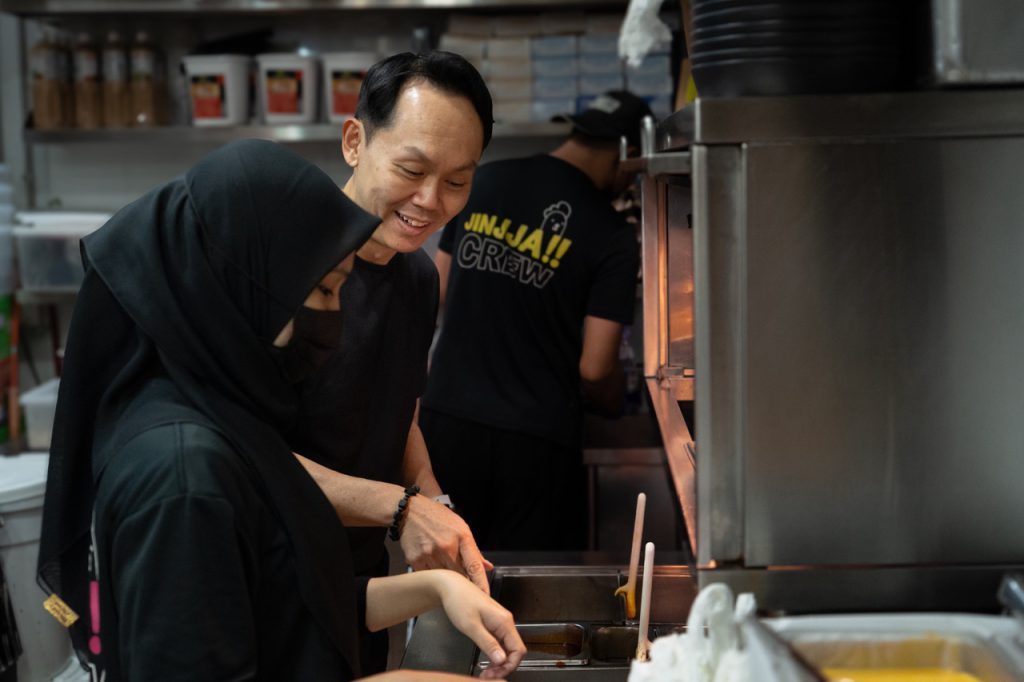
Despite the seemingly endless number of challenges in the F&B industry, it appears that Jinjja Chicken has it all figured out by tightening its operations, improving efficiency across all outlets, and evolving its menu to build a steady and healthy business.
For Bernard, this mindset is rooted in lessons he learnt early on prior while working in his family’s business, Molly’s Nonya Kuehs. There, he spent eight years alongside his father and aunt prior to starting Jinjja Chicken, absorbing the values that continue to guide him today.
One of the most important lessons he had learnt was to prepare ingredients with care and cook to order—a standard that he said few fast-casual restaurants still uphold today. He also understood that a business can still thrive not by charging exorbitant prices, but through discipline, consistency, and hard work.
“My dad was up at 3 AM everyday to start the factory, and my aunt ran the shop daily on just four hours of sleep. No shortcuts, no off days. That spirit stuck with me when I built Jinjja Chicken,” he said.
“In such a competitive market, we know we can’t outspend the big players. But we can win over customers one meal at a time: By being consistent, honest, and always putting quality first. We believe that if we stay true to our values and keep delivering good food with heart, that will set us apart.”
New concepts & destinations
These strategies have been successful for Jinjja Chicken so far, with the brand having established six outlets in Singapore.
It has also expanded regionally, with three outlets in Indonesia, two outlets in Brunei and one in Malaysia. Bernard has expressed his ambition to take the brand to Thailand, Vietnam, China, and possibly Australia via franchising.
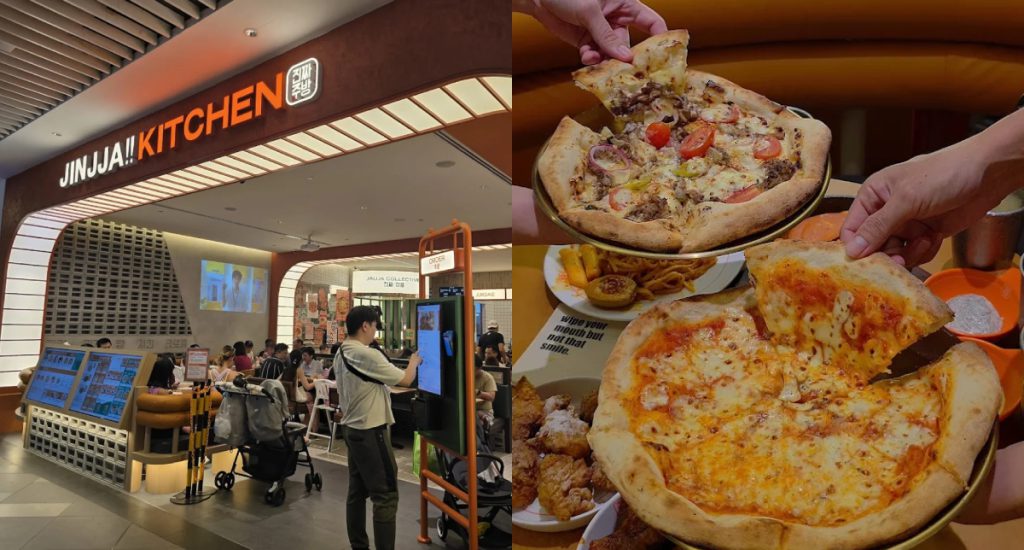
Beyond this, the business has also ventured into a new restaurant concept: Jinjja Kitchen, which offers a wider range of popular Korean dishes, including Korean pizzas, pastas, and hotplate rice bowls. It currently has two outlets in the city-state.
According to Bernard, responses have been encouraging so far, and he plans to open more outlets and introduce new dine-in formats in the near future.
However, the challenging business climate continues to weigh heavily on many F&B business owners, deterring some from entering the industry. For those determined to push through despite the odds, Bernard offers a simple piece of advice:
Don’t do it just because you’re passionate about F&B.
Do it because you’re good at F&B.
Bernard Tay, founder and Managing Director of Jinjja Chicken
- Learn more about Jinjja Chicken here.
- Read more stories we’ve written on Singaporean businesses here.
Featured Image Credit: Jinjja Chicken


